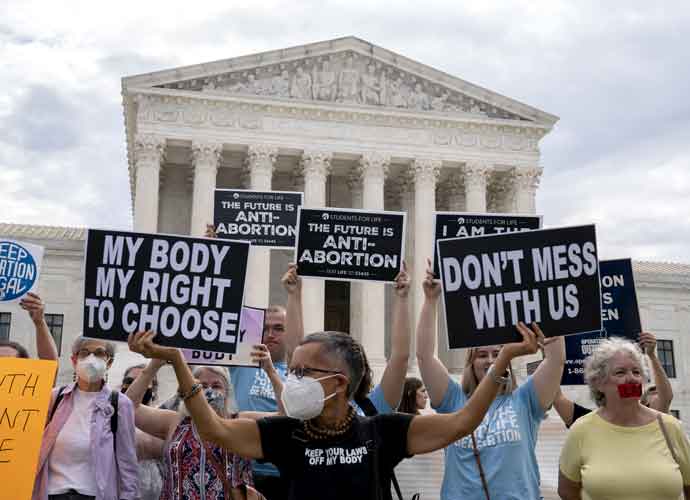Anti-Abortion Bills Fail In Conservative Nebraska & South Carolina
State legislators failed to pass a six-week abortion ban in Nebraska on Thursday, while a near-total ban failed simultaneously in South Carolina.
Both Nebraska and South Carolina are deeply conservative states and have state legislatures controlled by Republicans – highlighting a potent internal conflict among Republicans who have begun questioning the political viability of further abortion-rights restrictions.
Nebraska, the state with the only unicameral legislature in the country, did not pass the proposed “Heartbeat Act” that would ban abortions after six weeks except in instances of rape, incest and the life of the mother. Thirty-two of the 49 members of Nebraska’s legislature voted for the bill, falling one vote short of a needed two-thirds majority to overcome the filibuster.
Two members abstained, including Republican Sen. Merv Riepe (R) who had proposed an amendment that would have started the ban at 12 weeks.
Subscribe to our free weekly newsletter!
A week of political news in your in-box.
We find the news you need to know, so you don't have to.
“It is unacceptable for senators to be present not voting on such a momentous vote,” said Nebraska Gov. Jim Pillen (R). “I call on Senator Merv Riepe to make a motion to reconsider and stand by the commitments to life he has made in the past.”
Nebraska will continue to enforce its current abortion ban, which restricts the practice after 20 weeks.
In South Carolina, the “Human Life Protection Act,” passed in the State’s House of Representatives, but likewise failed in the State’s Senate by one vote.
Among those who voted against the bill in South Carolina were three female Republican state senators.
“Once a woman became pregnant for any reason, she would now become property of the state of South Carolina if the ‘Human Life Protection Act’ were [to] come into law,” said state Sen. Katrina Frye Shealy on the Senate floor on Wednesday. “She could no longer make decisions on her own or at the advice of her well-trained doctor. Every female, regardless of her age, would suddenly become subject to the power of a code book regarding her health.”
Shealy is one of the three Republicans who dissented from her party, maintaining South Carolina’s current law that restricts abortion after 21 weeks and six days.
Since Roe vs. Wade was overturned last summer by the Supreme Court in Dobbs v. Jackson Women’s Health Organization, abortion rights have become the most hot-button issue in American politics.
While abortion rights in Nebraska and South Carolina have been upheld for now, other states have been successful in passing near-total bans.
These states include Alabama, Arkansas, Idaho, Kentucky, Louisiana, Mississippi, Missouri, Oklahoma, South Dakota, Tennessee, Texas, West Virginia and Wisconsin.
Last week, Florida Gov. Ron DeSantis (R) signed a six-week abortion ban in his state after it passed both chambers of Florida’s legislature – ending the state’s status as a safe destination for many southern abortion-seekers.
On Friday, a Utah judge will review a challenge to a law that bans abortion clinics throughout the state, which Planned Parenthood argues would effectively end abortion access in Utah.
While the Republican Party is traditionally pro-life and has been responsible for appointing all of the Supreme Court Justices who held the majority opinion in the Dobbs case, some Republicans have cautioned against appearing too extreme on the issue.
They point to the 2022 midterm elections, where Republicans underperformed expectations in the months following the reversal of Roe vs. Wade.
Other Republicans, like former Vice President Mike Pence, have argued that the party should instead capitalize on the Supreme Court’s ruling and push for a national abortion ban.
Get the most-revealing celebrity conversations with the uInterview podcast!







Leave a comment